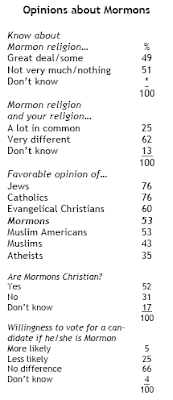Heretic: Joel Osteen Says Mormon's are Christian
These are Joel Osteen's words from an interview he did at FoxNews.
WALLACE: And what about Mitt Romney? And I've got to ask you the question, because it is a question whether it should be or not in this campaign, is a Mormon a true Christian?
OSTEEN: Well, in my mind they are. Mitt Romney has said that he believes in Christ as his savior, and that's what I believe, so, you know, I'm not the one to judge the little details of it. So I believe they are.
And so, you know, Mitt Romney seems like a man of character and integrity to me, and I don't think he would — anything would stop me from voting for him if that's what I felt like.
WALLACE: So, for instance, when people start talking about Joseph Smith, the founder of the church, and the golden tablets in upstate New York, and God assumes the shape of a man, do you not get hung up in those theological issues?
OSTEEN: I probably don't get hung up in them because I haven't really studied them or thought about them. And you know, I just try to let God be the judge of that. I mean, I don't know.
I certainly can't say that I agree with everything that I've heard about it, but from what I've heard from Mitt, when he says that Christ is his savior, to me that's a common bond.
For full transcript click here.
Click here for details on the Mormon religion.
Click here to see a comparison of Christianity and Mormonisim.


















